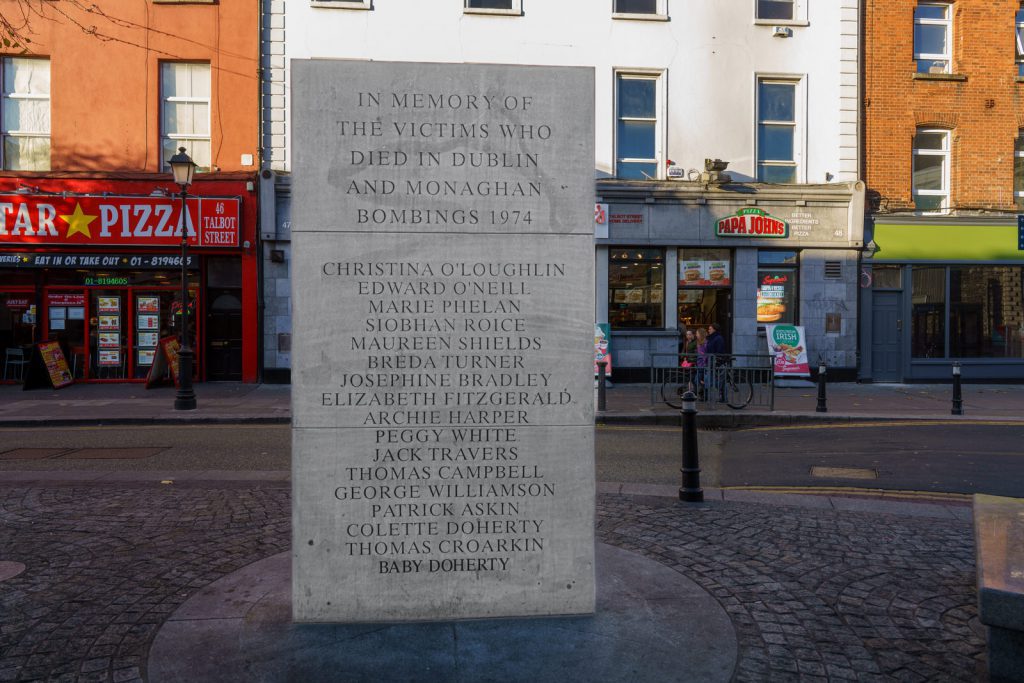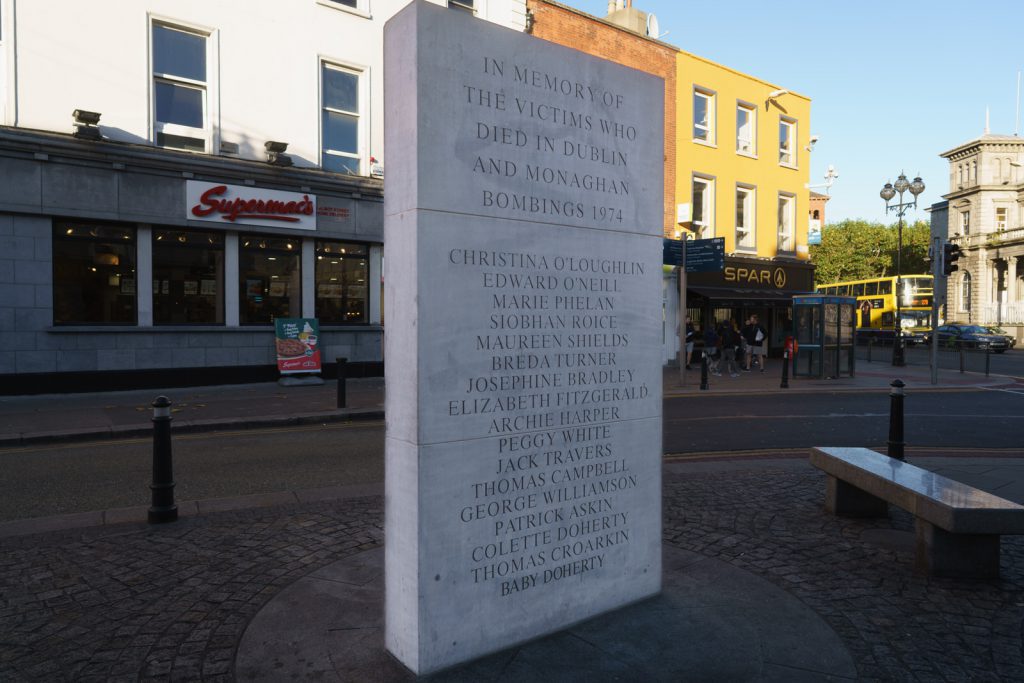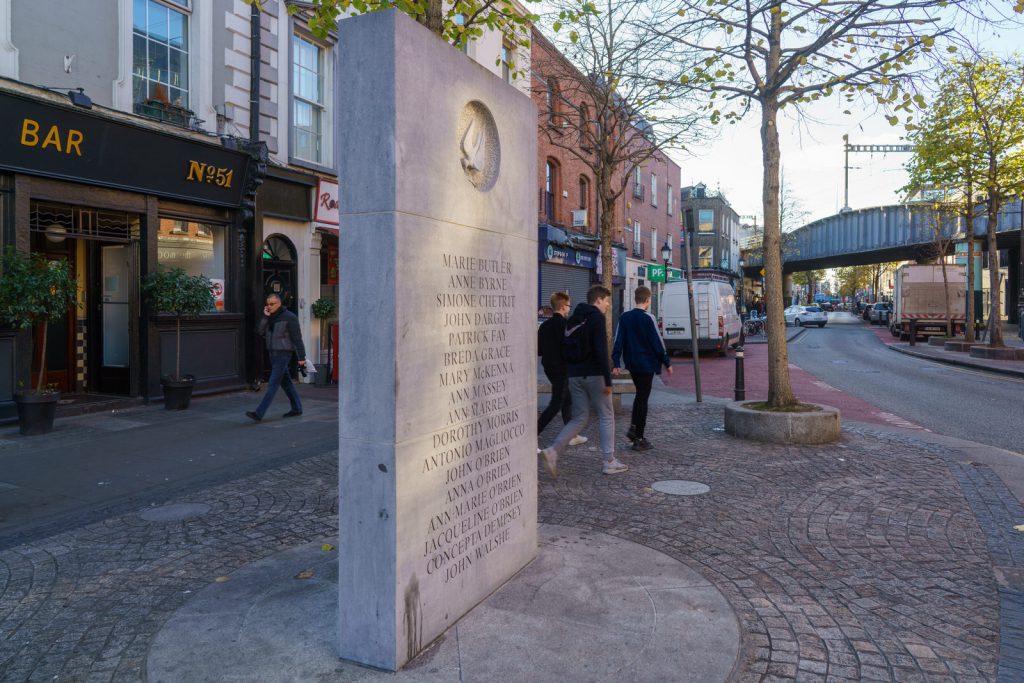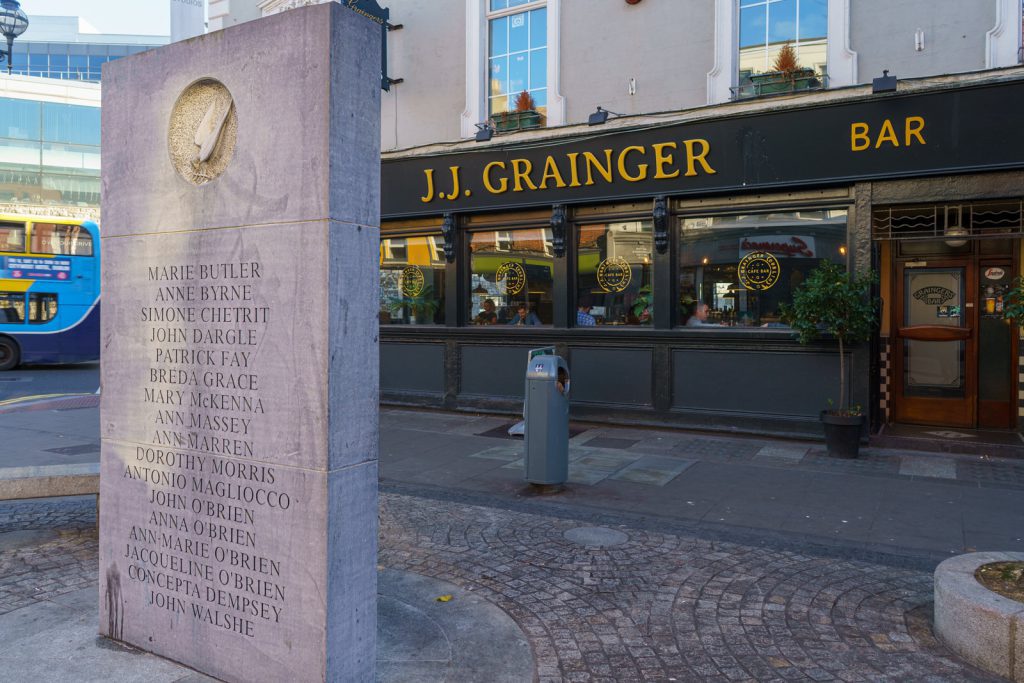DUBLIN AND MONAGHAN BOMBINGS
This photograph dates from November 2016 and I have not photographed it recently.
22nd June 2022: Dublin City Council would like to announce that it has today added the name of another victim of the Dublin Bombings, Baby Martha O’Neill, to the memorial in Talbot Street.
I was waiting for my father at the top of Talbot Street to give me a lift home minutes before the first bomb exploded in Dublin. To the best of my memory we had crossed to the South of the River Liffey at 17:30. I must admit that I remember little else about the event.
Edward John O’Neill was one of those killed in the bombing in Parnell Street on 17th May 1974, in which two of his sons were badly injured.
Edward O’Neill’s wife, Mrs Martha O’Neill, was six-months pregnant at the time. Three months later, and as a result of the trauma, Mrs O’Neill’s baby, Martha, was stillborn at full-term. Baby Martha O’Neill was formally recognised as one of the victims of the bombing, being listed in the report of the Government’s Commission of Investigation into the Dublin and Monaghan bombings of 1974.
Although Edward O’Neill’s name was on the memorial in Talbot Street (at the junction with Amiens Street), Baby Martha O’Neil’s name has only now been added.
The Dublin and Monaghan bombings of 17 May 1974 were a series of co-ordinated bombings in counties Dublin and Monaghan, Ireland. Three bombs exploded in Dublin during the evening rush hour and a fourth exploded in Monaghan almost ninety minutes later. They killed 33 civilians and injured almost 300. The bombings were the deadliest attack of the conflict known as the Troubles, and the deadliest attack in the Republic’s history. Most of the victims were young women, although the ages of the dead ranged from 19 up to 80 years.
The Ulster Volunteer Force (UVF), a loyalist paramilitary group from Northern Ireland, claimed responsibility for the bombings in 1993. It had launched a number of attacks in the Republic since 1969. The month before the bombings, the British government had lifted the UVF’s status as a proscribed organisation.
The bombings happened during the Ulster Workers’ Council strike. This was a general strike called by hardline loyalists and unionists in Northern Ireland who opposed the Sunningdale Agreement. Specifically, they opposed the sharing of political power with Irish nationalists, and the proposed role for the Republic in the governance of Northern Ireland. The Republic’s government had helped bring about the Agreement. The strike brought down the Agreement and the Northern Ireland Assembly on 28 May.
No one has ever been charged with the bombings. A campaign by the victims’ families led to an Irish government inquiry under Mr. Justice Henry Barron. His 2003 report criticised the Garda Síochána’s investigation and said the investigators stopped their work prematurely. It also criticised the Fine Gael/Labour government of the time for its inaction and lack of interest in the bombings. The report said it was likely that British security force personnel or MI5 intelligence was involved but had insufficient evidence of higher-level involvement. However, the inquiry was hindered by the British government’s refusal to release key documents.
The victims’ families and others are continuing to campaign to this day for the British government to release these documents.



